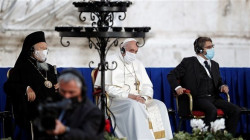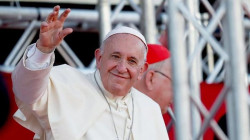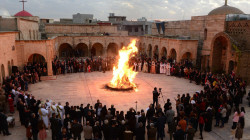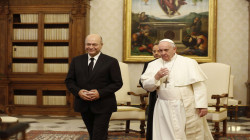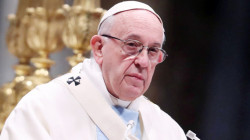What makes Pope Francis' visit to Iraq "historic"?
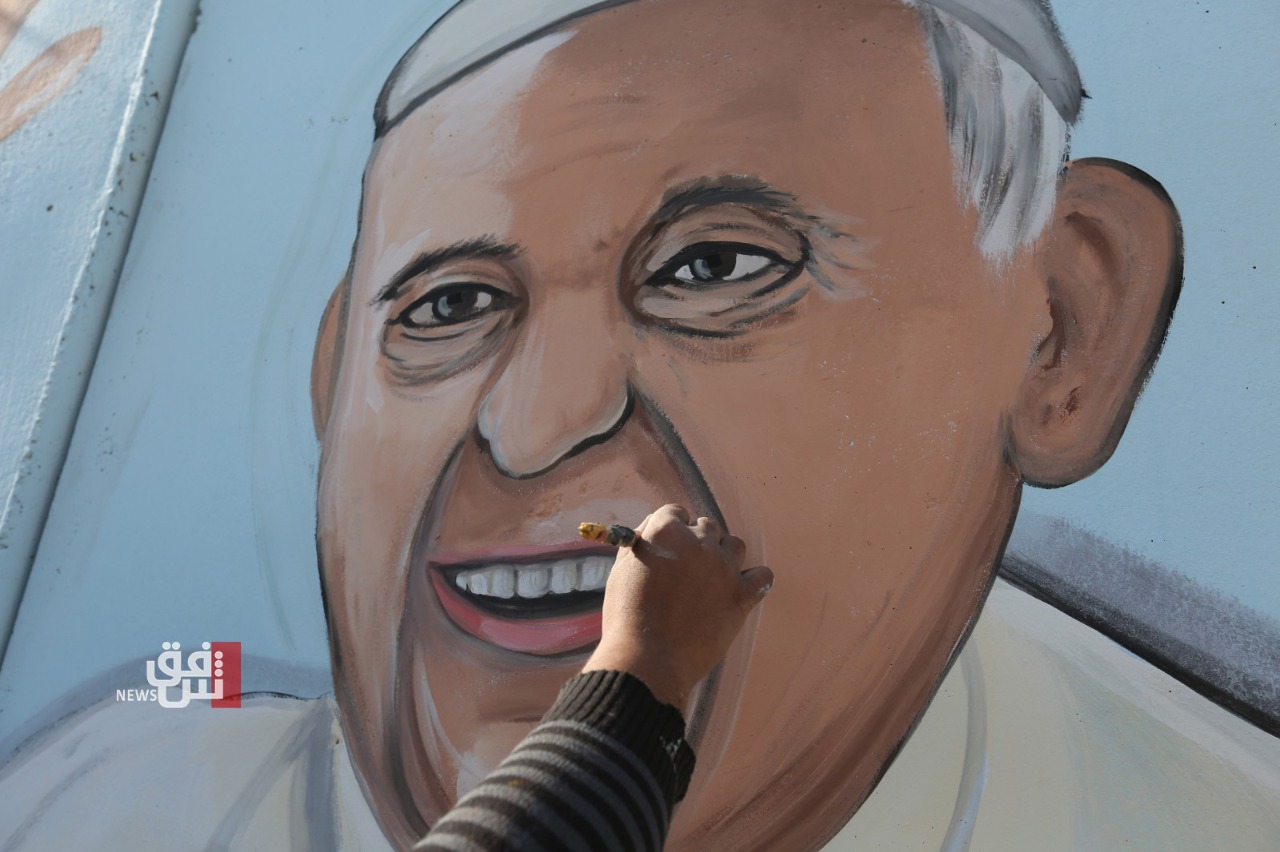
Shafaq News / A new historic moment has been written the moment Pope Francis' plane landed in Baghdad, as he is the first Supreme Pontiff to make a pilgrimage to the land of Mesopotamia and hold the first spiritual summit with the supreme Shiite reference.
However, the papal visit also has important dimensions. By visiting Baghdad, Najaf, Dhi Qar, Nineveh, and Kurdistan, the Pope is taking a risk that no spiritual leader has ever taken before, given the security risks and the COVID-19 pandemic, because of which the Pope has not left the Vatican for more than a year.
Despite the symbolic importance of everything related to the Pope's visit, Iraqis of all religions are looking forward to the change that the Pope may bring with him to improve their lives, conditions, and future.
The last serious attempt to visit Iraq was during Pope John Paul II's era, who sought to visit Iraq in 1999. Nevertheless, the problems of the international embargo imposed, the uproar caused by his intention to go to Baghdad under Saddam Hussein's regime, as well as Iraq's inability to secure an appropriate hosting of the Supreme Pontiff, were enough to overturn the idea.
The Vatican has always feared for Iraq and all of its components, including Christians. While the war drums were banged before the 2003 invasion, Pope John Paul II raised the voice against the use of arms' language.
That is why Pope Francis is now completing a long-standing dream that has not been fulfilled, and his "Iraqi message" must be resounding as he addresses everyone:
The Iraqi government: The government of Mustafa Al-Kadhimi will be called on to work on political, ethnic, and religious reconciliations and try to move forward in building a state that is fair to all and capable of helping Iraq emerge from crises and upheavals.
Muslims and Christians: They are "all brothers". A call at the heart of Pope Francis's attention, and that they are also sons of the Prophet Ibrahim, to whom the Pope came to pilgrimage - in confirmation of the call he made in the United Arab Emirates in 2019, in partnership of Al-Azhar, the representative of the Sunni Muslims, and therefore Christians, like their Muslim brothers, are connected to this land and their presence there is natural and rooted
The Shiite majority: Through the meeting with the leading spiritual leader of Iraqi Shia Muslims in Iraq, Ali al-Sistani, the highest-level meeting between a Shiite authority and the Supreme Pontiff. Pope Francis hopes to strengthen the dialogue and communication that has existed for many years between the two parties, taking advantage of his presence in Iraq and Najaf to pass an implicit message that the forces with a majority in any country should seek to contain and embrace other minorities in society, not marginalize them.
Kurdistan: Pope Francis will probably remind the world of the suffering that this region has experienced in the past decades, what it faced in the recent terrorist attack of ISIS, and the suffering of the displaced people from all the components that it had embraced.
U.S.A. and Iran: It is not the Pope's habit to call countries by their names, but he will appeal - knowing that the Iraqi government will be happy to hear it - to keep Iraq, the cradle of the divine religions, away from regional conflicts and foreign interference.
Pope Francis will be a boon to Christians, who are at the foundation of Iraq's identity and ancient civilization, especially after their numbers have declined dramatically since 2003, which is threatening their existence in the country.
That message will be the Pope's main concern to give hope to Iraqis, especially young people, whose voices he must be heard in the protests that have been taking place in Iraq for more than a year.
From Baghdad to Najaf and then to Ur ancient city in Dhi Qar, where the Prophet Ibrahim was born - according to religious narratives - and then to Nineveh and Kurdistan, the Pope will walk carrying the banner of peace, coexistence, and brotherhood.
Kurdistan's President, Nechirvan Barzani, expressed that this visit would open a wider global door to Iraq and Kurdistan, a source of satisfaction for all components, and an opportunity to deepen the culture of coexistence, tolerance, and acceptance.
Iraqis hope that the Pope's visit will have a clear political impact both internally and externally, as well as on social stability.
The Supreme Pontiff's visit to Iraq is expected to reflect a positive picture of the country, which is dominated by the news of strikes and killings. It may also strengthen the Iraqis' confidence in their country and government.
After the climax of the hardships experienced by Iraqis in the past years, the Pope's visit will, as many hope, contribute to healing wounds just as Saint Francis of Assisi tried during the 13th century to overcome the pain of the Crusades.
It is time for Iraq to challenge death. This was the Vatican's far-reaching vision of what would happen to the Iraqis when it opposed the war 18 years ago, and it seems that Pope Francis will reaffirm this message that wars have always been a defeat for humanity.
